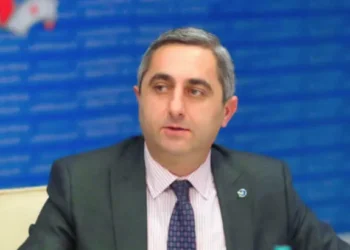As Georgia emerges as a regional hub for international higher education, a growing concern threatens its progress: the country’s visa policy for visiting family members of foreign students.
Despite significant improvements in student visa processing, families, especially parents hoping to attend milestone events like graduation, face frequent rejections. As Kakha Shengelia, President of Caucasus University, said, this issue threatens Georgia’s reputation as a welcoming destination.
“We are hosting a graduation ceremony tomorrow, yet dozens of students’ parents have been denied visas,” Shengelia told BMG. “This is a problem not only for families from India, but also from Africa and Asia. We need clear guidelines and more flexibility from the government.”
Booming international enrollment
Over the past four years, the number of international students in Georgia has doubled. In the 2024–2025 academic year alone, 37,100 foreign students enrolled in local universities—a 21% annual increase. While medical programs remain popular, interest in IT, business and psychology is rising, signaling diversification in Georgia’s academic offerings.
Caucasus University, one of the country’s leading institutions, currently hosts 1,500 international students—around 30% of whom are from India, with others arriving from across Europe, Africa, and Asia. This year, the university welcomed 300 foreign students into non-medical programs.
An economic engine at risk
Shengelia mentioned the broader economic impact of the international education sector. “These students contribute about USD 400 million annually through tuition fees and living expenses,” he said. “If supported properly, that number could rise significantly—to 50,000 or even 70,000 students.”
However, the lack of clarity on visa policy for student family members could divert prospective students to neighboring countries with more inviting regulations.
Georgia’s global appeal
Currently, the largest contingent of international students comes from India (55%), followed by Jordan (7%) and Israel (6%). Shengelia emphasized that a more inclusive and consistent visa policy would not only support students and their families but also boost Georgia’s standing in education and tourism.
“This isn’t just about graduation day,” he added. “It’s about showing the world that Georgia is serious about being a competitive, compassionate player in global education.”














